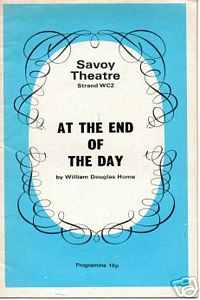Venue: Savoy 1973
Director: Robert Chetwynn

Cast
| Henry Jackson Prime Minister | John Mills |
| His Wife | Dulcie
Gray |
| Leader of the Opposition | Michael Denison |
| Martin
Knight TV
interviewer |
Jack May |
| Removal Man | Ron Pember |